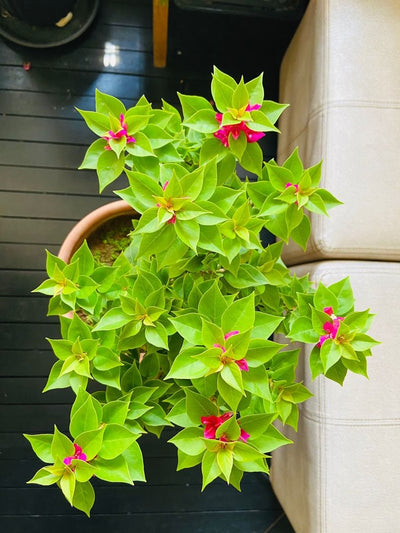Role waste segregation in waste management

Waste segregation basically means keeping wet and dry wastes separately, so that dry can be recycled and wet waste can be composted manually.
Waste management : is the procedure for gathering, moving, processing, recycling, and discarding waste items in a way that is both ethical and responsible for the environment. For the sake of the ecology and the general welfare, effective waste management is essential.
Waste management is the procedure for gathering, moving, processing, recycling, and discarding waste items in a way that is both ethical and responsible for the environment. For the sake of the ecology and the general welfare, effective waste management is essential.
Waste management techniques include the following:
Source reduction: This entails activities like decreasing packing or adopting durable goods to reduce the amount of trash produced at the source.
Recycling: This entails using procedures like sorting, cleaning, and processing to transform waste materials into new products.
Incineration: This process includes igniting garbage to produce energy.
Landfills: These entail burying waste products in predetermined locations with appropriate liners and management techniques to prevent groundwater and air contamination.
Waste segregation refers to the sorting and separation of waste types in order to facilitate recycling and proper disposal. When waste is properly sorted, it can save your company money. The type of waste should be used to separate waste. The most suitable treatment and disposal.
The Advantages of Waste Segregation
Waste segregation makes the reuse, recycling, and recovery of waste easier. Waste separation can help the recycling process. Separating wet waste from dry waste, for example, is a simple way to assist recycling companies. It will aid in the recycling of non-biodegradable waste and the direct treatment of biodegradable waste in waste management. As a result, only biodegradable waste will be disposed of in the natural environment, resulting in lower overall pollution. Waste separation encourages the efficient use of our resources while also protecting them for future generations. However, the significance of waste segregation does not end there.
Separating waste aids in the reduction of landfill waste. Landfills are becoming more of a problem as the world's population and consumption patterns grow. Waste segregation is an excellent way to reduce the environmental impact of landfills as well as the health risks associated with improperly disposed of wastes and toxins.
Unless waste is separated before disposal, it may become mixed up at the landfill. What would happen if that waste contained methane or carbon dioxide? It could cause serious issues because both are greenhouse gasses that contribute to global warming.
Why should I do Waste Management at home
Here are a few reasons why you should manage your waste at home:
Environmental Protection: Proper waste management contributes to environmental protection by lowering the amount of waste that ends up in landfills, incinerators, or the natural environment. This, in turn, aids in the conservation of natural resources and the prevention of pollution.
Proper waste management can help protect your health and safety by lowering the risk of exposure to hazardous materials such as chemicals, medical waste, or sharp objects. By properly disposing of organic waste, it can also help to prevent the spread of disease.
Cost savings: Effective waste management can help you save money on garbage disposal fees as well as reduce the amount of money you spend on buying new items by reusing what you already have.
Encourages responsible behavior: Waste management encourages responsible behavior by making you aware of the amount of waste you produce and encouraging you to reduce, reuse, and recycle. This can lead to more sustainable habits that benefit both you and the environment.
Educational opportunities: Waste management provides educational opportunities for both children and adults to learn about the importance of environmental stewardship and the benefits of waste reduction. It can also help to foster a sense of community by encouraging people to work together to achieve common goals.
Why should I do Waste Management at home
- So that it reduces waste generation that reaches landfills and reduces pollution to air and water in waste management.
- So that different processes like recycling, composting, incineration can be applied to different kinds of waste
Practice of Waste management at home
- Keep separate containers for dry and wet waste in the kitchen as well as Hall.
- Keep two bags for dry waste collection plastic and paper, for the rest of the household waste
- Keep plastic from the kitchen clean and dry and drop into the dry waste bin. Keep glass or plastic containers rinsed of food matter
- Send wet waste out of the home daily to escape from the smell. Store and send dry waste out of the home, once a week.
- Keep a paper bag for throwing the sanitary waste and dry waste.
First few steps to initiating waste management in the apartment complex
-
 Form a group of like-minded people for a community waste management.
Form a group of like-minded people for a community waste management. - Explain waste segregation to your family or neighbors in your apartment building.
- Get separate storage drums for storing the dry waste and wet waste.
- Get the staff in the apartment building to also understand
- Have the dry waste picked up by the Dry waste collection centre or your local scrap dealer for waste management.
After waste segregation You can convert the waste into compost. To make a compost from compostable materials we can use Sadabahar composter vertical garden planter tower. The best feature of it is self fertilizing with inbuilt composter attached with planter that is available at Urban plants.




Leave a comment